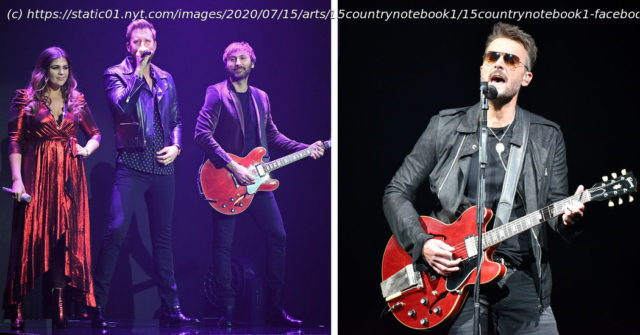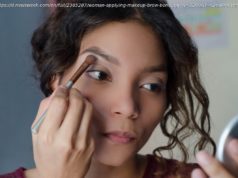The larger music industry has vowed to examine racism and bias. In Nashville, only the genre’s outsiders are dipping their toes in essential conversations.
Scornful and indignant, Eric Church — the most accessible of country music’s contemporary heretics — begins his new single, “Stick That in Your Country Song,” with an image of a decayed America:
Church never explicitly refers to race, but it’s clear the nation he’s singing about contains multitudes, and it’s failing; the song’s lyrics are a far cry from the benign bliss that suffuses the rest of the genre, even at this very pointed moment. By the time Church arrives at the chorus, he’s taunting his ideologically vacuous peers: “Stick that in your country song/Take that one to No. 1,” he sneers, knowing full well they never would.
There’s similar pique in “March March,” the latest single from “Gaslighter,” the comeback album by the Chicks (formerly the Dixie Chicks), the country music pariahs. The lyrics decry climate change, laws that seek to control a woman’s body and gun violence: “Standing with Emma and our sons and daughters/Watching our youth have to solve our problems/I’ll follow them, so who’s coming with me.”
The video amplifies the song’s lyrical provocations, collecting protest footage from the early 20th century to the present, spanning various causes but heavily addressing the Black Lives Matter movement, concluding with an onscreen roll call of names of Black victims of police violence.
“Stick That in Your Country Song” and “March March” aren’t directly about the current political moment — both were written before the recent protests sparked by the killing of George Floyd — but they’re about a nation that was already in turmoil, and has been for decades. Viewed through that lens, they are perfectly timed.
But that the two most prominent quasi-protest songs to come from the extended country music ecosystem are from artists who, in very different ways, have made a point of cutting against its orthodoxy only underscores how ill-prepared country music — the genre and the industry — is for the current conversations about racial justice.
This isn’t a surprise. For most of the last decade, mainstream country music has been distilling down to the dimmest version of itself, overindexing on breezy flirtation and lol-shrug rural tropes. Even the brawny, quasi-militaristic chest-puffing of the early 2000s — exemplified by Toby Keith, Trace Adkins and so on — has been all but excised. Luke Bryan is singing about drinking, Morgan Wallen is singing sweet nothings, Justin Moore is singing about drinking, Chris Janson is singing sweet nothings: More than at almost any time in its history, country music is a pool party.






